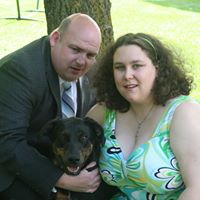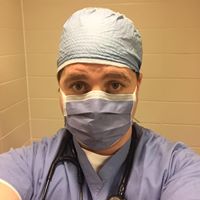Leaderboard
Popular Content
Showing content with the highest reputation on 07/24/2012 in all areas
-
Hey everyone, My name is Andrew, and im working on starting a on campus EMS group. The school seems to like the idea, but is slow to help me with anything. Any ideas or if anyone went through another schools EMS group that could give me a few pointers would be greatly appreciated. Thanks1 point
-
Hey guys, I am doing an IV therapy review module for my service, and just for kicks was wanting to throw in a slide on the history of IV therapy. I've been able to get some info so far, however, the answer to one question still eludes me. Does anyone know what year IV therapy came to the pre-hospital setting? If anyone knows or can point me in the right direction I would definitely appreciate it. Thrutheashes1 point
-
When I was in EMS the first time, back in the late '80s - early '90s, I was 18 and on fire. I thought I was "IT." I knew everything, I knew I was all grown up, I knew I was mature, etc. In other words, I had the typical thought process for a young adult. Now, with more than twenty years of life-experience, I have somewhat of a different view of things. I see now that I was not on fire like I thought. I wasn't the uber-mature, end-all, gift to paramedicine (or the world) that I thought I was. Granted, in a lot of ways, paramedicine is a young person's sport. But is there some room to consider the idea of requiring paramedics to be at least 21? If you think about it, we have 19 year old medics who can push narcotics, but cannot purchase liquor! I know the debate about degree medics is also raging, but should there be a requirement to work at a certain level for some time before advancing? That would build in a waiting and maturing period.1 point
-
New to this site so i guess i will introduce myself a little bit. My name is Aaron, i am from Arkansas where i have been an EMT for almost 10 years. Hope to get to meet some new people and possibly learn a few thing from everyone.1 point
-
Well folks, I did it. As of this morning I have successfully completed Paramedic school. I will be testing in the next couple weeks andthen begins my state cert waiting game. I want to thank the site for all the support the last few years. A special thanks to some Awsome friends who encouraged me along the way. Kiwi. Thanks for being yourself. Helpful and fun. Eydawn. So supportive a great friend. Doczilla. Your CAP lab took me to the next level on all things airway. Admin. Thanks for the site to allow a meeting of the minds. CAPT. Ruffles thanks for the flight to CAP. Dwayne. You drunken SOB. I love you brother. Thanks for all the support and conversations and making me choose the hard road. Last of all Rob "dustdevil" Davis. You mentored me through hard times as you were having your own. Thanks for you insight in professional EMS. Fireman1037 Josh And soon to be known as BAYAMedic.1 point
-
I am new here to EMT CITY and new to the world of EMS. I am currently taking EMT Basic classes at my local college. I been scanning through some posts here reading different takes on the same subject. I am really feeling over whelmed. I am 43 years old and just starting out In emergency medicine am I nuts or what? I have a feeling I am going to need alot of advice from you guys.1 point
-
Hello Everyone! I have lurked this forum for a long time, and I must say it has been one of the biggest influences in shaping the way I understand prehospital care. I figured it was about time that I started participating and contributing. I'll tell a little about me by posing a question. I got my undergraduate degree in biology, and after graduating went on to paramedic school. So now I am here to ask you, after all this talk of increasing educational standards and degree tracks, would you consider me a degreed paramedic? I recognize my degree is not in paramedicine specifically, but certainly my core curriculum parallels that of what you would expect from such a degree - biology, chemistry, cellular stuff, some pharmacology thrown in, anatomy, etc. Going from here, where would we draw the line? Certainly a degree in underwater basket weaving wouldn't carry as much weight (no pun intended). What about something like chemical engineering? If anyone can offer insight into states/counties that have a degree requirement and where the cut off lies, please share. Thanks!1 point
-
Hello, This upcoming year i will be going to communtiy college as a freshman and have been thinking about what I would want to become. With the way the economy is i'm thinking that getting my certifications and trying to get onto the FDNY EMS would be a decent job. The goal would be to eventually take the promotion to fire fighter. Would someone on the job be able to explain all the ins and outs of being an EMT? As far as getting all the certifications, getting on the list, and what the work is like in the field, and the job overall? Thank you very much.1 point
-
The nature of the job is that the plaintiff's story will always be first and loudest. The true story is rarely as dramatic or interesting and all that is remembered is that an Ambulance was called and someone died, with implied blame being on us.1 point
-
You might also want to contact Washington University in St Louis, Last time I checked which was I admit a long time ago, they had a student run EMS system, and I don't know if they have it anymore. They may have gotten rid of it. But they ran a pretty good tight ship back then.1 point
-
The Republic of Texas would not look favourably on you for that ....1 point
-
1 point
-
The first time I seen someone bleeding everywhere, before I was trained in any facet of patient care, I went right to it and did what I could. I knew that I was cut out for it at that moment. On the otherhand, if I see blood dripping from my own body, catch my head, b/c I'm prolly gonna faint. Almost a 100% guarantee. There will always be moments, that even the strongest provider cannot handle. You have to learn how to get past those in a healthy and proactive manner. Once you get that down, you're good to go. I don't know how else to explain it.1 point
-
Medicgirl, when I read your post, part of me thought "you are reading my mind!" I have been in EMS for 16 years, sometimes part time, sometimes full time. I have had a number of personal struggles the past two years, and many times I have seriously considered leaving EMS altogether. I still wake up a lot of mornings and ask myself if this is where I should be. I don't have my answer yet... but I know that where I am now, is better than where I was before. The career I was in before EMS, the last while I was there, I would wake up in the morning and think "damn, I am not sick, so I can't call in sick to work." I don't feel like that here, but I am working through some things that are pretty big hurdles in my career right now. Are you feeling like you aren't in the right place at the right time, because you feel you don't know enough? Because that one call that went bad is still haunting you? Are you doubting that you are making a difference? Because you feel like you have too much to do? Because you always have a student and are getting burnt out? Because your partner drives you crazy? Because your boss drives you crazy? I think once you have narrowed down why you feel the way you do, then you can move forward to figure out how to solve that why... it might mean just changing something in your workplace... or it may mean changing careers... I don't think you are in the wrong field. I think you take your work seriously, and you do your best on every call (which is a lot more than some medics do!). I suspect that you are hitting a bit of a wall.. the "is this all there is" kind of wall... maybe you are ready for a challenge just to change your perspective a little bit... maybe teaching, maybe mentoring, maybe working on a research project for your boss... I am just throwing out ideas, and hoping one sticks. Don't be quick to leave EMS.1 point
-
@ Cytochrome. You are a brave person by walking the path of your last post on this particular forum that has a good following of atheist and agnostics that are crazy smart. I feel a little guilty for baiting you ... but only a little. You did a good job of detailing a broad panorama of ideas that can be interpreted from different portions of the scriptures. I am indeed interested in your opinion as well as those of others such a chbare who has my deepest respect as one of the smartest guys I have seen on the internet. He will say no, but he has a keenly critical and analitical thought process. I have learned much from his writings and tutorials on Youtube. I have not reconciled the different ideas regarding the 6th commandment but think you are spot on in the "thou shalt not murder" as opposed to "thou shalt not kill" conception. There are clear instances in the Bible where killing is not condemned even after the 10 commandments were delivered. Some of these instances are war, self defense and in defense of ones family, and in retribution for crimes committed. Although off the top of my head these instances are not condemned under the Ancient Pact or what we would know today as the Old Testament. Under the New Pact or New Testament the 10 commandments are compacted into 2 great commandments in the words of Christ himself in Mathew 22 Jesus replied: "Love the Lord thy God with all your heart and with all your soul and with all your mind". This is the first and greatest commandment. And the second is like it: "Love thy neighbor as yourself". The first commandment encompasses the first 4 commandments from the Old Testament and the second the last 6. This is seen when Jesus said "All the law and the prophets hang on these two commandments", being that the law and the prophets are synonymous with the Old Testament. If we interpret "Love thy neighbor as yourself" as wishing upon your neighbor the same that you would wish upon ourselves then we would desire no harm to our neighbor that we would not desire for ourselves. This brings us to have to define harm. If harm is allowing our neighbor to suffer terribly living in feces and vomit their last days. We would have to consider if that is something we would desire for ourselves as well, or would we desire for ourselves a compassionate death as an escape from a horrible existence. I make reference to a previous post I made [”From a Hippocratic point of view we would have to redefine death as the not being the ultimate harm in order to "do no harm" defining the loss of quality of life as the ultimate harm and death as a cure or solution. The more I write the more I realize that I am not intelligent enough to come up with an answer.”] end quote. What did you learn in your class about the Catholic church considering suicide a mortal sin? I am not catholic so I am not well versed in this theology but find it to be very confusing as to what would be considered an exception to the rule. EDIT: I reread your post and am sorry that I was redundant on some of your points.1 point
-
Ultimately, the bible is rather nebulous and prone to contradict it's self. This essentially means that humans are free to interpret it in any number of ways and in essence cherry pick concepts that fit into their own personal view of the universe. I admit that I do it. Unfortunately, this leads to an inconsistent way of making sense of things and applying a logical, evidence based and consistent method of appreciating the syntax of the physical world. This leads us to how I have to look at the physical world. I have to look at it based on reproducible evidence, logic and in the United States, through the lens of a very specific legal and medical system. Going away from religion, this brings us to medical ethics. One of the most important concepts of this has been patient autonomy. Allowing a well informed patient to make their own medical decisions is a critical component of how we do things. The way I look at medicine is that my job often revolves around educating my patient in a complete, understandable and bias free way to ensure they have as complete a picture of the situation as possible. Then it is my job to support their informed decision. This must occur regardless of my personal beliefs in a divine mechanism or lack thereof.1 point
-
Okay I am going to do my best to make this coherent, but it is late and I am trying to condense an entire semesters worth of study into a manageable post. So I went to a small, Catholic, liberal-arts college. I am not Catholic, nor was the majority of the student body, but it offered some very valuable educational opportunities. One of the courses I took was called "Christian Healthcare Ethics". We discussed a lot of issues, such as abortion, HIV and contraception use, reproductive sciences and of course Physician assisted suicide (PAS). In terms of euthanasia, there are two ideals that seem to be put at odds with each other -- compassion and sanctity of human life. The Christian perspective puts heavy weight into the sanctity of human life: we are created in God's image thus we must respect ourselves and one another. There are references that we are not the masters of our own lives, but merely stewards of the life given to us by God. But the idea that human life is to be held in higher regard than all other things is something that we seemed to decide with little cause. In fact, the action of Jesus on the cross directly contradict the idea that human life is most important. It was the sacrifice of this sanctity that gave it the significance it has. This is reiterated by early Christian martyrs in choosing to give up their lives rather than using any means possible simply to continue their existence. If we are to hold true that "being alive" is most importance, these actions become unethical. Instead they suggest that there are times when it is appropriate to relinquish your life. The next piece to consider is the morality of the actions of a physician in providing this service. The Bible is pretty clear about murder. You shall not murder is one of the 10 commandments, plain and simple, and there are countless other references. However, I think we need to be more specific about motive. All these references are made in regard to a situation of violence. They contain phrases like "spilling blood upon the ground" and saying that assault on a man is an assault on God. But we are not talking about violence and retribution here. We are talking about an act of compassion, which could very well be argued is the TRUE ideal above all other ideals. Jesus says "love your neighbor as you love yourself". If the cessation of suffering would be the most loving thing someone could provide you with, are we not living the teachings of Christ when we provide euthanasia? In trying to brush up a little on the details of what I remember, I actually found a passage in the Bible that directly supports euthanasia... "Then he begged me, ‘Come over here and put me out of my misery, for I am in terrible pain and want to die.’ “So I killed him,” the Amalekite told David, “for I knew he couldn’t live." Samuel 1:9-10 Basically, what I am trying to get at is that if you take one single line out of context you can come up with an argument for or against just about anything. What we really need to do is look at the work as a whole, and see what the core ethics the book is trying to instill -- love, compassion, forgiveness. I fear that I have not connected the dots as well as I intended, but that's the best I can do for the time being. Perhaps as specifics are brought up I can offer more insight. Thanks for your interest!1 point
-
To question the career path we have all chosen is so normal. We all have those days and we all question what we do, but you have to remember is why we do this job. It can be the most rewarding profession in the world. We have the strength to help those that need our help. I agree with Dwyane if you choose to leave the profession then go for it but make sure your leaving for the right reason and not because you dont think your making a differnce.1 point
-
I think the big problem is that we, as a species and a society, use logic and reason as our primary means to communicate. When someone has a mental/psych issue we have lost our only means to convince someone to behave as we want them to. What we fail to realize is that our reality is different from theirs. Imagine someone trying to tell you that the computer right in front of you does not exist. This is the exactly what you are trying to do to someone who is schizophrenic when you say their paranoia and delusions are not real. The same is true when you are trying to tell a depressed person that life is good or a person having an anxiety attack that there is nothing to worry about. The body and the senses have deceived the mind. We can no longer use our intellectual capacity to diagnose or our ability to intervene as our purpose. We must become unconditionally compassionate. I think this forces us to step out of our egos and realize we are weak and ill-equipped. Compassion is a lot harder than problem solving.1 point
-
1 point
-
chbare covered the pharmacology which was the root of your question, but I am going to play devils advocate...just because I can. Based on the formula for normal blood pressure of [(Age x 2) + 90 = 102], and hypotensive being [(Age x 2) + 70 = 82] I am going to argue that she is normotensive. She does not have any hives or angioedema. It sounds like her symptoms are localized to her bronchioles...making me lean away from anaphylaxis. Her heart rate and her respirations are elevated which should be expected from her respiratory distress. She has a history of asthma but no history of allergies (other than seasonal -- does anyone know if there is a correlation between these and anaphylactoid reactions?) You said that she had a "bug bite" which I take to mean something entirely different from a HYMENOPTERA STING. One of which is a leading cause of anaphylaxis, the other I don't believe carries such a risk. In terms of the contrast in onset between asthma and anaphylaxis...well...I can't quite come up with an argument for that. But I think my case still stands. So I'm going to say that your working diagnosis wasn't as wrong as your instructor may have suggested, even though he had the "answer" in his hands and had the advantage of building things around it. Now I ask you...so she was maxed out on albuterol, but what other medication could you have given that has a mechanism of action that is still pretty specific to the bronchioles?1 point
-
It's been a couple years since I've posted that first post and I just want to say THANKS for all the replies. I'm reading some now even for the first time because I've been away from this forum for so long. 2 years ago I was interested in emergency medicine and getting an education in it. I'm a bit older now (obviously), have taken EMT-Basic and understand some things better now than I did then. Its kinda interesting too, to read back 2 years ago and look back on my thoughts and how I felt when writing that, and to see how much I've learned and changed since then.1 point
-
WestMetro - does your organization higher individuals with degrees exclusively? I understand what you are saying about the commitment to education and investing in oneself no mater the field of study. Without a doubt the most valuable thing I walked away with was the ability to think critically -- to question information I was given regardless of source and form a coherent argument either for or against it. This is something people hopefully get whether they major in a science or in British literature, and as is endlessly echoed on this forum, the pitfall of our prehospital care system. ParaMike - I hope you have enjoyed the process of going back to school. I think I would be a student forever if I could do it as a career. It baffles me how very little I know. It is moment's like these that I think about the movie The Matrix and imagine the ability to just download content into our brains. Would it be satisfying to just know everything, or would the loss of the process make it less gratifying?1 point
-
Ummm...move I work in nice stations, showers beds couches flat screen tv's Xbox computers I make $18hrs as a basic and most companies around me pay 11-15 Medics are paid 20-40 depending on where they are. More in the city Sounds like an Arizona problem. But our fire dept only does fire suppression, EMS does everything else1 point
-
I think it is time for a real conversation about guns in our country. I am a republican and in favor of the 2nd amendment, but I don't believe any citizen needs access to a 100 round clip and an assault rifle to "hunt" or protect themselves. These weapons should be reserved for military use only.1 point
-
1 point
-
Very interesting to listen to that. Sounds like an impressive response with good organization overall. I doubt that most of us could honestly claim that our agencies would do as well in a situation like this.1 point
-
"What's up?" "What's going on today?" "How are you doing today?" "How can I help you today?" I'm thinking about transitioning soon to "Please state the nature of your medical emergency."1 point















